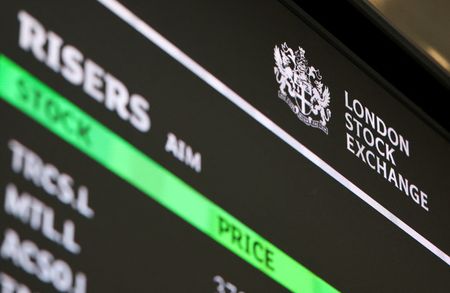By Yoruk Bahceli and Sam Tabahriti
LONDON (Reuters) -British Prime Minister Keir Starmer last week announced plans to require workers to hold a compulsory digital identity card to tackle illegal immigration.
The plan has revived a national debate, last played out two decades ago, in which fears about privacy and security run up against a government drive for greater control and efficiency.
WHY IS BRITAIN DOING THIS?
Starmer’s centre-left Labour Party is trailing in opinion polls behind Nigel Farage’s populist Reform UK party. High immigration is top of many voters’ concerns, and so far Labour’s attempts to control it have not had a big impact.
The government says digital IDs will limit access to jobs and thereby remove one of the factors drawing migrants to Britain.
Labour is trying to differentiate itself from Reform by demonstrating it is serious about immigration but with more moderate policies, said Andrew Blick, co-director of the centre for British democracy at King’s College London.
Reform has called for the mass deportation of asylum seekers and proposed scrapping the “Indefinite Leave to Remain” status which migrants can claim after five years, replacing it with a five-year renewable work visa.
WHAT WOULD A DIGITAL ID LOOK LIKE?
A free mobile app to prove a person’s identity, age and immigration status, with data protected using biometric security and encryption similar to banking apps.
It would be mandatory for employers checking right-to-work status and would replace document checks which the government says are easier to fake or circumvent. The scheme is expected to be in place before the next election, due in 2029.
It could also eventually be used to simplify access to public services.
WHY DOESN’T BRITAIN HAVE IDS ALREADY?
Britain is a relative laggard when it comes to ID cards, which were abolished after World War Two.
In the early 2000s Labour tried to introduce a compulsory ID scheme, framed as a way to bolster national security after the 9/11 attacks in the United States.
Although initially popular with the public, the projected cost of introducing the cards combined with opposition from civil liberties campaigners, who saw them as a threat to freedom and were concerned about data security, meant opinion soured.
The scheme was watered down to become voluntary, before it was scrapped when Labour lost power in 2010.
HOW DOES PUBLIC OPINION COMPARE?
In 2004, an Ipsos poll showed 80% overall support for the physical ID card proposal.
This time round public opinion is divided.
A YouGov survey on Friday showed 42% supported Starmer’s plan while 45% opposed it. Reform voters were by far the strongest opponents of the scheme.
An Ipsos poll, conducted in July before the government announcement, showed 57% of Britons support ID cards and that support for a specifically digital scheme was lower at 38%.
More than 2.5 million people have signed a petition against a digital ID.
The proposal was not included in Labour’s 2024 election manifesto.
WHAT’S DIFFERENT THIS TIME ROUND?
Now millions of Britons use phone apps to process personal data, including for payments and access to health records. During the COVID-19 pandemic apps warned of exposure to the virus and allowed people to prove their vaccination status.
The Ipsos polling showed 3 in 10 people said concerns about how their personal data might be used or sold on and the potential for misuse were reasons to oppose ID cards.
Other concerns were comparable to those raised last time.
Confidence in the government to hold information securely had fallen to 39% in July’s online survey, compared to 57% in a 2004 telephone survey. Confidence that the government could roll out an ID card scheme had fallen from 39% to 28%.
(Reporting by Yoruk Bahceli and Sam Tabahriti, additional reporting by William Schomberg; Editing by William James and Janet Lawrence)











